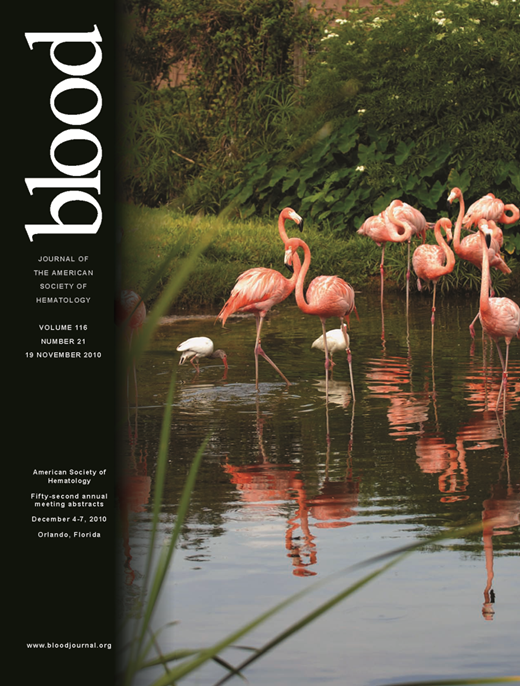Abstract
Abstract 355
The prognostic relevance of variant t(9;22) and additional cytogenetic aberrations (ACA) at diagnosis of chronic myeloid leukemia (CML) is conflicting.
We used baseline and outcome data of 1028 patients (607 male, 421 female, median age 53, range 16–88) with chronic phase CML randomized to the German CML-Study IV (imatinib [IM] 800 mg [n=264] vs IM 400 mg [n=253] vs IM 400 mg + IFN [n=281] vs IM 400 mg after IFN failure [n=108] vs IM 400 mg + AraC [n=122]) to investigate the impact of variant t(9;22) and of clonal ACA at diagnosis on time to complete cytogenetic remission (CCyR) and major molecular response (MMR), accepted markers of prognosis. Cytogenetic analysis was performed after 24- and/or 48 h culture on G-banded metaphases. If appropriate, fluorescent-in-situ-hybridization on metaphases was used in addition. Since lack of the Y chromosome is regarded as a negligible age-related, not leukemia-associated event, those patients were excluded from evaluation.
In total, 123/1028 patients (12%) showed additional cytogenetic findings at diagnosis: 52/1028 patients (5.1%) had variants of the t(9;22), 33/1028 patients (3.2%) lacked the Y chromosome, 38/1028 patients (3.7%) had other additional numerical or structural aberrations. 105/1028 patients (10.2%) had only one type of additional cytogenetic finding, while 18/1028 patients (1.8%) showed ≥ 2 types of additional cytogenetic findings. 905/1028 patients (88%) had no variant t(9;22) or ACA. Median age, sex and treatment were similarly distributed (Table 1).
In 45/52 patients (86.5%) with variant t(9;22), one further chromosome was involved (three way translocation), whereas in 7/52 patients (13.5%) ≥ 2 chromosomes were involved (complex variant). No involvement of the chromosomes 10, 18, 20, 21, X, or Y has been found.
For patients without variant t(9;22) and ACA, with variant t(9;22), with variant t(9;22) and ACA other than –Y, and with ACA other than -Y and variant t(9;22), median time (years) to CCyR was 0.98, 0.84, 1.08 and 1.34, median time (years) to MMR was 1.4, 1.55, 1.8 and 2.17, and probability (%, confidence interval) for 2 years overall survival was 0.97 (0.96-0.98), 0.96 (0.89-0.99), 0.95 (0.90-0.99) and 0.94 (0.85-0.99), respectively.
There was no difference regarding time to CCyR, time to major molecular response (MMR) and 2 years overall survival between patients with variant t(9;22) or ACA compared to those without variant t(9;22) or ACA.
We conclude that additional chromosomal abnormalities at diagnosis have no negative prognostic impact. This finding is hypothesis generating. For confirmation of this hypothesis longer observation of the course of patients with variant t(9;22) and ACA is needed.
| Variable . | No variant t(9;22) or ACA . | Variant t(9;22) . | Variant t(9;22) and ACA other than -Y . | ACA other than –Y and variant t(9;22) . |
|---|---|---|---|---|
| n | 905 | 52 | 90 | 38 |
| Median age | 52 | 56 | 54 | 53 |
| Sex (% female) | 41% | 42% | 40% | 37% |
| IM after IFN failure | 96 | 4 | 11 | 7 |
| IM + Ara C | 104 | 8 | 13 | 5 |
| IM 400 mg | 224 | 11 | 20 | 9 |
| IM + IFN | 253 | 12 | 20 | 8 |
| IM 800 mg | 228 | 17 | 26 | 9 |
| Variable . | No variant t(9;22) or ACA . | Variant t(9;22) . | Variant t(9;22) and ACA other than -Y . | ACA other than –Y and variant t(9;22) . |
|---|---|---|---|---|
| n | 905 | 52 | 90 | 38 |
| Median age | 52 | 56 | 54 | 53 |
| Sex (% female) | 41% | 42% | 40% | 37% |
| IM after IFN failure | 96 | 4 | 11 | 7 |
| IM + Ara C | 104 | 8 | 13 | 5 |
| IM 400 mg | 224 | 11 | 20 | 9 |
| IM + IFN | 253 | 12 | 20 | 8 |
| IM 800 mg | 228 | 17 | 26 | 9 |
Haferlach:MLL Munich Leukemia Laboratory: Employment, Equity Ownership, Research Funding. German CML-Study Group:Deutsche Krebshilfe: Research Funding; Novartis: Research Funding; Roche: Research Funding; BMBF: Research Funding; Essex: Research Funding.

This icon denotes an abstract that is clinically relevant.
Author notes
Asterisk with author names denotes non-ASH members.

